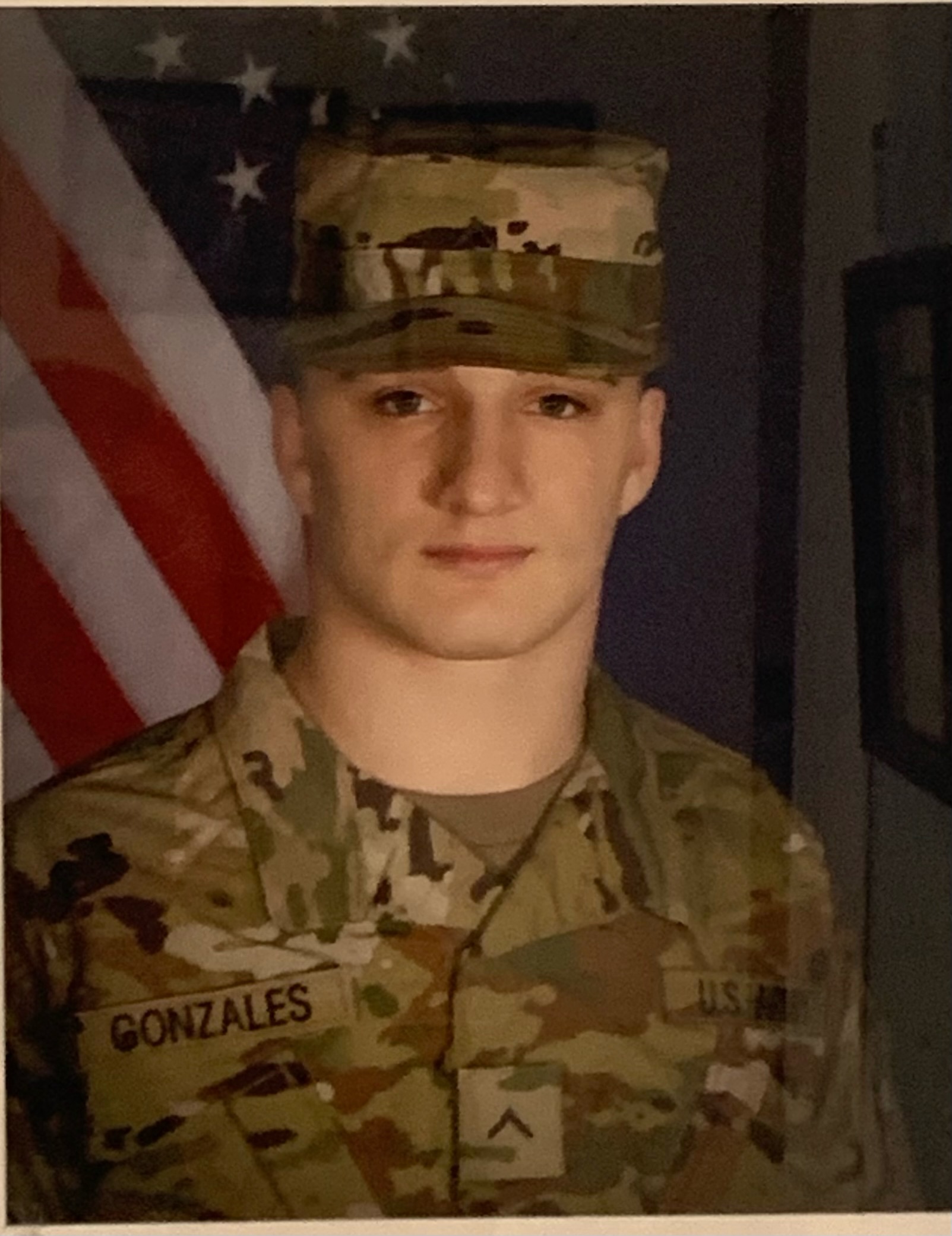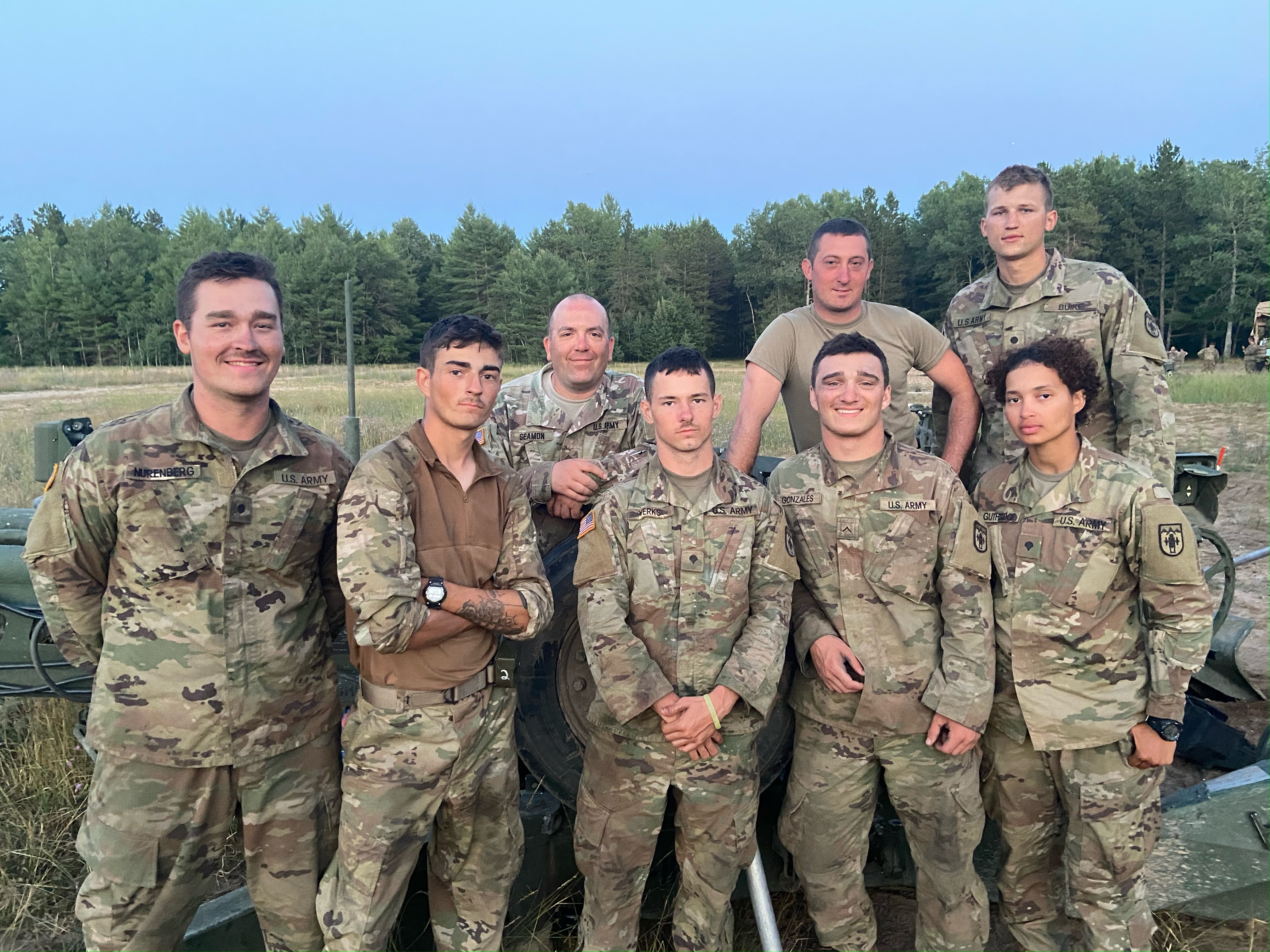Army National Guard member pursues MSW to serve veterans
November 11, 2025 - Brandon Drain
MSU’s two-part Combat Veterans Certificate prepares future social workers with military-informed, trauma-aware training—skills that help earn veterans’ trust and improve care.
Warning: This story talks about suicide. If you or someone you know needs help, please call, text or chat the Suicide and Crisis Lifeline at 988. You matter. You are important.
For many combat veterans, the hardest fight begins at home: reintegrating into civilian life while navigating PTSD, substance use, moral injury, and heightened suicide risk.
In terms of treatment, “One size does not fit all with this population,” said Tina Thompson, coordinator of MSU’s Combat Veterans Certificate. “Providers need proper training, which includes exposure to the realities of serving in the military (and in combat) to deepen empathy and compassion.”
MSU’s Combat Veteran’s Certificate is a two-part course designed to immerse students in military life and culture so they can better understand—and more effectively serve—combat veterans through trauma-informed, practice-ready training.
Veterans can quickly tell whether a social worker has that preparation, Thompson noted. “Without it, it can be difficult to build rapport, and veterans might not return for care.”
 Sage Gonzales is an active member of the Army National Guard and has been awarded the Fall 2025 Reeves Combat Veterans Fellowship while completing MSU’s Combat Veterans Certificate. This scholarship is only for veterans who wish to earn an MSW to better serve other veterans
Sage Gonzales is an active member of the Army National Guard and has been awarded the Fall 2025 Reeves Combat Veterans Fellowship while completing MSU’s Combat Veterans Certificate. This scholarship is only for veterans who wish to earn an MSW to better serve other veterans
“I wanted an MSW because I wanted to work with people—I wanted to do therapy,” Gonzales said. “I have a niche perspective. I understand the culture of the military, and I thought I could be of service.”
Gonzales is entering his third year in MSU’s MSW Program, while juggling an unpaid internship and a part-time job. Set to graduate in the spring of 2026, Gonzales hopes to pursue psychedelic-assisted therapy for trauma and PTSD as the evidence base and licensure pathways evolve.
“It’s a dream goal,” he said. “It’s niche now, but it’s growing, and I’d like to be part of that.”
Psychedelic-assisted psychotherapy is an emerging therapeutic approach that combines the use of psychedelics (a subclass of hallucinogenic drugs) and psychotherapy for the treatment of post-traumatic stress disorder (PTSD) and treatment-resistant depression.
“Veterans don’t want sympathy or pity, nor do they want a civilian claiming to be ‘expert’,” said Thompson. “As civilian providers, we must humble ourselves and allow ourselves to learn from the veterans we serve. Healing happens through connection.”

The MSW Veterans Scholarship is funded through the Arlene Brophy Reeves and Larry W. Reeves Combat Veterans Fellowship in the School of Social Work.
LEARN MORE about the MSW Veterans Scholarship fund by contacting Senior Director of Development Rachel Schmidt at rschmidt@msu.edu or (517) 432-7047 or visit MSU CrowdPower.

